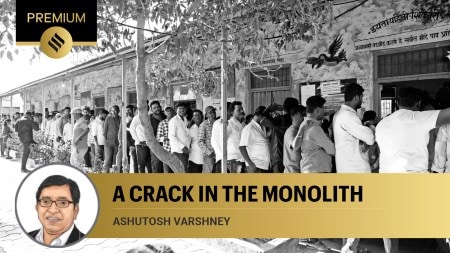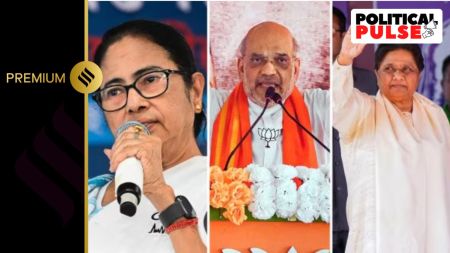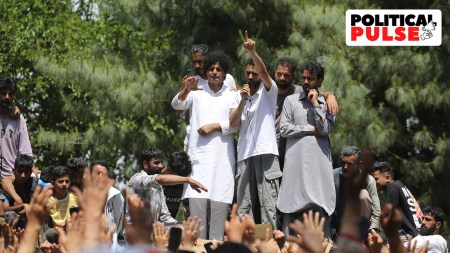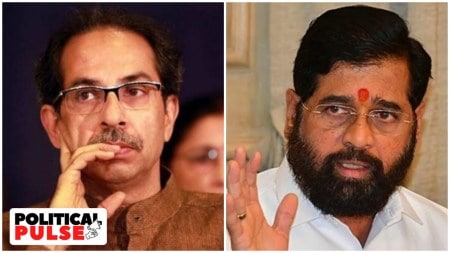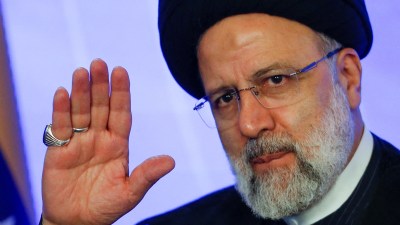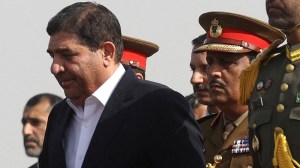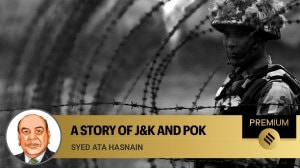- India
- International
Govt allots airwaves, can seek national interest content: Anurag Thakur
Satellite TV channels in India are required to broadcast at least 30 minutes of content daily on “themes of national importance and of social relevance”.
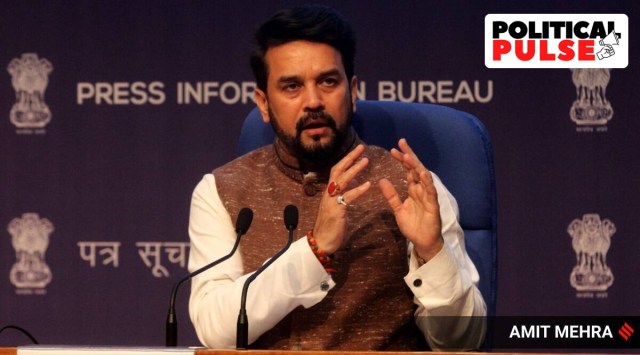 Union Information and Broadcasting Minister Anurag Thakur
Union Information and Broadcasting Minister Anurag Thakur Airwaves are not auctioned but allocated, so there should be no problem if the government asks broadcasters to highlight national interest content in return, said Union Information and Broadcasting Minister Anurag Thakur in the Rajya Sabha Thursday.
Satellite TV channels in India are required to broadcast at least 30 minutes of content daily on “themes of national importance and of social relevance”. This is part of the ‘Guidelines for Uplinking and Downlinking of Satellite Television Channels in India, 2022’, which were approved by the Union Cabinet on September 28.
Thakur was replying to a question by TMC member Jawahar Sircar, also the former CEO of Prasar Bharati. Sircar said this is already the mandate of Prasar Bharati, the national broadcaster.
“Has Prasar Bharati failed? Why is this mandatory, why the monitoring, why punishment for a good cause like public service broadcasting (PSB)?” Sircar said. He asked if shows like Ramayana and Mahabharata qualify under public service broadcasting and if current programmes can be adjusted as per the guidelines or if fresh programmes need to be created.
Thakur replied that “it is all open and voluntary”. He said that most TV channels already have some programmes that are meant for public service.

Thakur said instead of auctioning airwaves, the government has allocated airwaves to television channels for taking their programmes to people.
“In exchange, the government has asked television channels to broadcast public interest and national interest issues for 30 minutes. Several television channels are already carrying such programmes,” Thakur said, adding that the decision was taken in accordance with the recommendations of the Telecom Regulatory Authority of India (TRAI).
The government’s new public service broadcast rules for private television channels will be based on voluntary compliance and self-certification, Thakur had said on Tuesday in the Lok Sabha, responding to a question by Congress MPs Manickam Tagore and Karti Chidambaram, and Trinamool MP Saugata Roy, asking “if all the stations will have to mandatorily broadcast content on issues of national importance and social relevance for at least 30 minutes every day; and the objective of such mandatory directions.”
On whether any channel not following such mandatory directions is liable to lose its licence to operate, the response stated that “voluntary compliance and self-certification are the guiding principles for implementation of this provision under the guidelines”. Private channels, during their meetings with the government, had made their resentment on the issue clear, with some of them even calling it “unreasonable”.
The Indian Express has learnt that considering this, channels will be asked to self-certify their content and file a compliance report every three months. A specific advisory in this regard will be issued by the ministry soon, and the obligations will come into effect in 2023. Only last week, the ministry held a fresh round of discussions separately with news and non-news channels.
Thakur also clarified that no provision has been made under the guidelines by the government to subsidise the cost of producing and airing such content for broadcasters. There are about 940 private satellite television channels operating across the country as of now. He also stated that the list of eight themes “is not exhaustive and other themes which are of national importance and of social relevance may also qualify for being accounted for under obligation for PSB”.
The MPs also asked if stakeholder consultations were carried out with industry groups before issuing the guidelines.
In its response, the government cited Telecom Regulatory Authority of India (TRAI) recommendations from 14 years ago. “The provision has been included in the new Guidelines on the recommendations of Telecom Regulatory Authority (TRAI) on the subject ‘Issues relating to entry of certain entities into Broadcasting and Distribution activities” issued on 12.11.2008,” it stated.
It added: “TRAI had finalised its recommendations on the subject with due diligence, observing the spirit of transparency and carrying out wide-ranging consultations with all the stakeholders.”
May 20: Latest News
- 01
- 02
- 03
- 04
- 05



